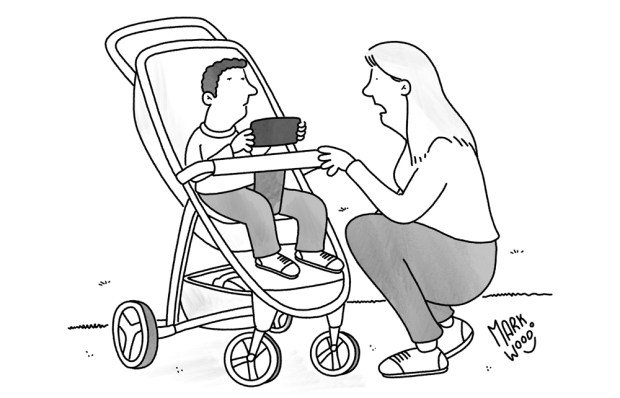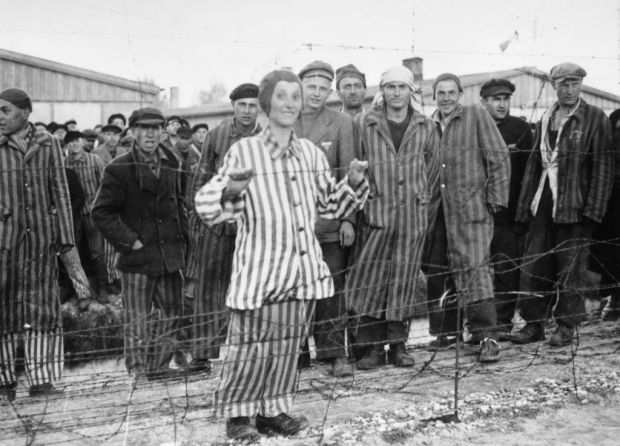International men’s day takes place today. There are plenty of good people working hard to raise the event’s status, but in many quarters it’ll be greeted with shrugs.
The same compelling stats will again do the rounds: that men die younger, receive longer prison sentences for the same crimes, do worse academically, represent the vast majority of our homeless and remain much more likely to kill themselves. Most will only be aware of the last statistic, even though it’s most likely the net consequence of all the others. Some people will acknowledge the problems facing men and boys but only offer up cursory platitudes and simple fixes. ‘Men need to talk more’, ‘Men need to cry more’, ‘Men need to hug other men without the catalyst of a last-minute goal’.
The subtext of such attitudes is almost always that men need to change. Women it seems, are the eternal finished product, ready for market. Whereas men are the equivalent of one of those robot dogs you see online that can do a bit of dancing but can’t quite master the stairs.
Even when men aren’t seen as individually defective, they are often viewed as collectively at fault. Feminists who take a sympathetic view of men’s mental health will sometimes go on to assert that men’s problems are yet another consequence of the patriarchy. But this just can feel like an attempt to get back to the ‘real’ agenda, like whenever the latest ‘Just Stop Something’ protest group inadvertently reveal that a sudden obsession with cavity insulation has something to do with Karl Marx.
The patriarchy is often imagined as a self-conscious act by men to protect both the status quo and each other’s interests. I’m not sure we’re all that concerned about one another’s welfare, given we are after all a species for whom the funniest thing imaginable is seeing our best mate take a football to the nuts. Most blokes don’t want a cultural revolution or, indeed, those fix-all solutions favoured by the ‘manosphere’ either, where they tell men to ‘crush’ self doubt and ‘unleash’ their inner beast. The closest most of us come to unleashing our inner beast is when a visiting in-law puts the heating on in September.
On a day-to-day basis the vast majority of blokes are doing their best to protect and provide for the people they care about. They may be a bit rubbish at remembering important dates, or the names of any children other than their own, but most are trying to be a dependable presence for the people they love.
When it comes to mental health, they would probably like to feel a bit happier, a bit calmer, sleep a bit better and feel less alone. It’s a hard thing to admit, but middle age and fatherhood can be a lonely business. At this age women are often still making friends: Annabelle from NCT, Claire from the school gate, Hannah from tumble tots, and that Pilates instructor who insists on leading all female classes. When I’m at the school gates my intention isn’t to make friends, it’s to, and this might sound crazy, pick up my son and take him home. Women excel in their ability to share the details of their lives with friends and family. It’s why a show like Loose Women has existed for nearly a quarter of a century; we recognise the value of a group of women getting together to share, moan a bit and laugh about the rubbishness of the hapless blokes they’ve been saddled with.
This kind of exchange is a lot harder for most men. For a start, when we do get time together, the last thing we want to do is talk about anything meaningful. This can easily lead to a situation where a man comes back from three days with his mates and has no new information to report to his partner. She’ll seek life ‘news’ but the only new thing he’s sure about is Greg’s fringe, which Greg spent the whole time getting hammered for.
His partner might conclude that this emotional distance is sad. In some ways she’s right, one of the great tragedies of being male is you never get to tell another man how you truly feel (the flipside being that you don’t have to listen to their woes – it may be flawed, but it’s not without logic).
The downside of this system is that as blokes bumble into middle-age the tough stuff of life becomes inevitable – disappointments, death, the cost of a family pass at Centre Parks. When the sad stuff goes undiscussed men can end up existing in an emotional vacuum.
But are those who say ‘men just need to talk more’ right? I suspect that even if men are encouraged to open up more, most of us are never going to become head tilting empaths or help our mate journey to find his ‘inner child’ (in fairness, we’d instantly forget the name of that child).
I suspect the real answer is something of a compromise: with men opening up more, but gradually and at their own pace. I wonder if something like the successful campaign for eating five fruit and veg a day could help. When spending time with a friend, aim for five new things you can tell your partner about them when you get home. In the process of finding out those things you might end up discovering something important. Or maybe, just like the original fruit and veg plan, you’ll only manage two, but at least you can convince yourself that the emotional equivalent of a Terry’s chocolate orange counts for the other three.
The problem with any drive towards ‘fixing’ men’s mental health is a lot of blokes like being blokes. The simplicity, the directness of communication, the fact you can make a full plan using just nine words spanning three text messages. So men might be open to some adjustments in behaviour, but only if it’s evolution rather than revolution.
We should keep this in mind the next time yet another campaign for men’s mental health calls on us to bare our souls. Men may need to talk a bit more – but let’s retain a bit of realism, the average bloke isn’t likely to go from nought to 60. Emotionally speaking, we’re less sports car and more family saloon.
Got something to add? Join the discussion and comment below.
Get 10 issues for just $10
Subscribe to The Spectator Australia today for the next 10 magazine issues, plus full online access, for just $10.




















Comments
Don't miss out
Join the conversation with other Spectator Australia readers. Subscribe to leave a comment.
SUBSCRIBEAlready a subscriber? Log in